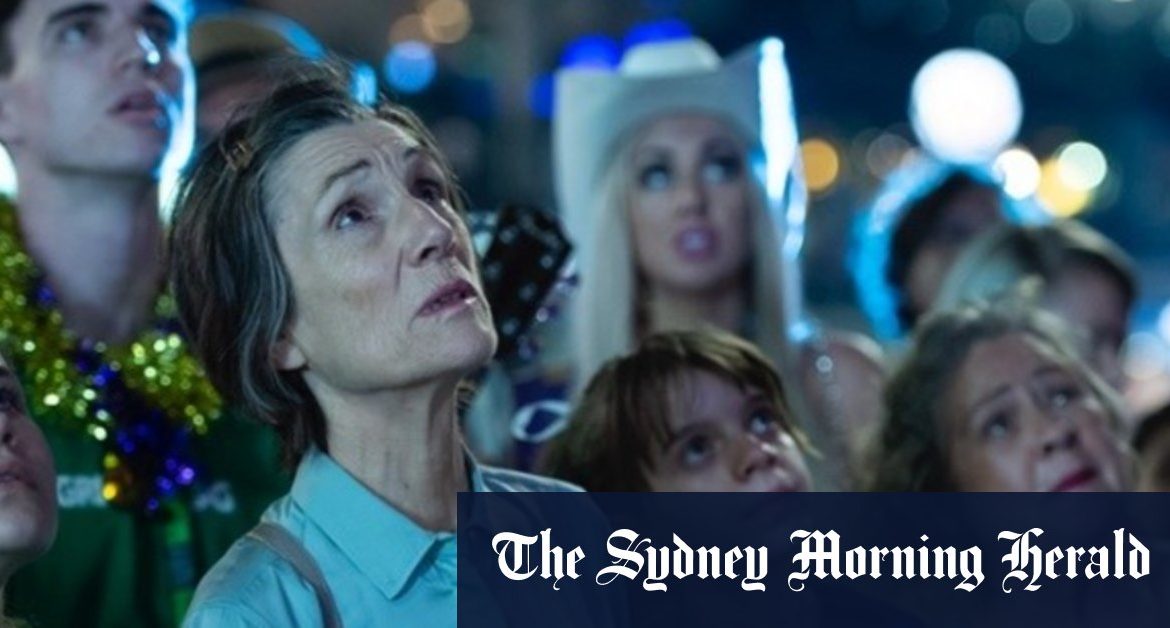One is simply that all three filmmakers have developed significant technical skills. Strauss is the youngest of the trio but she well and truly earned her chops on her first big commission: 65 episodes of the award-winning – and beloved – Dance Academy. There is no tougher test of your storytelling skills than producing something for a teen and tween audience. As a cohort, they mark hard. And while the show was good from the get-go, Strauss had the support of Joanna Werner’s Werner Films and the ABC along the way – the perfect setting in which to refine your expertise, and develop your confidence.
Meadows and Davies, both middle-aged, have long and impressive television CVs: the former best known for the iconic This Is England, the latter everything from Queer as Folk and Doctor Who to A Very British Scandal and Years and Years. They’re craftsmen of the highest order.
All three are helped by the current environment. Twenty years ago, when Davies made Queer as Folk, seeing two men kissing was considered outrageous. Society generally was in complete denial about the institutional, intergenerational abuse detailed in The Virtues. And in Australia the federal government rushed to overturn the Northern Territory’s legislation legalising assisted dying. Now, all these topics remain controversial, but at least we’re having the conversations. Which means networks and production houses are willing to take the risk of letting these writers put it all out there.
Perhaps most importantly, though, AIDS, assisted dying and sex abuse are all issues that the filmmakers, respectively, have been circling for years. They’ve had one or more runs at the subject matter. They’ve made mistakes. And come back and had another go.
Harriet Walter in The End, which begins with her character’s botched suicide attempts.Credit:Fox Showcase
Strauss launched her career with a short film motivated by her grandfather committing suicide by putting a plastic bag over his head, then her grandmother attempting to take her own life. Davies copped a lot of flak for making a show all about gay men that never mentions HIV. Or condoms. Meadows peopled his stories with troubled souls from the wrong side of the tracks as they attempt to obliterate their pain with booze and drugs – without ever daring to quite name the source of that pain.
The End, and It’s a Sin, and The Virtues, are what you might call the final drafts. They’re a testament to the value of time in bringing complex ideas to the screen, of letting ideas percolate – and of maybe mucking it up and having the chance to have another go.

Stephen Graham in The Virtues, which deals with the enduring legacy of childhhood abuse.Credit:Stan
Mostly, they’re a testament to the value of age and maturity in tackling difficult issues. When we’re young, things are very black-and-white, and we’re inclined to believe ours is the only correct perspective. But living a little develops our compassion, our empathy, our appreciation of nuance. As the decades roll around, most of us also come to understand that if you don’t laugh – especially at yourself – you’re stuffed. The End is the only series that counts as truly comedic – you certainly won’t be splitting your sides over The Virtues – but all three have a distinct sense of humour.
Loading
Most impressively, and what makes all three shows so hugely watchable, despite their difficult subject matter, is that all three writers – even Meadows, writing about lives destroyed by childhood sexual abuse – imbue their stories with tenderness. With love. In the age of the anti-hero, where so many of the water-cooler shows are about awful people doing terrible things, it takes significant courage to champion kindness, and hope. And it means that although all three shows are challenging and sometimes distressing, we not only keep watching, we feel better for having done so.
Most Viewed in Culture
Loading







